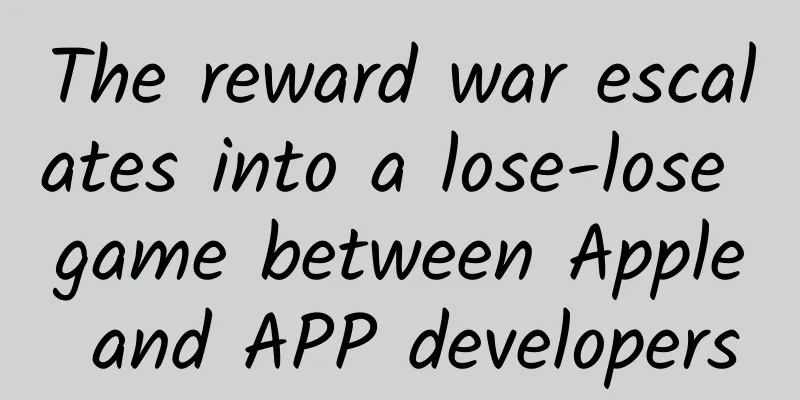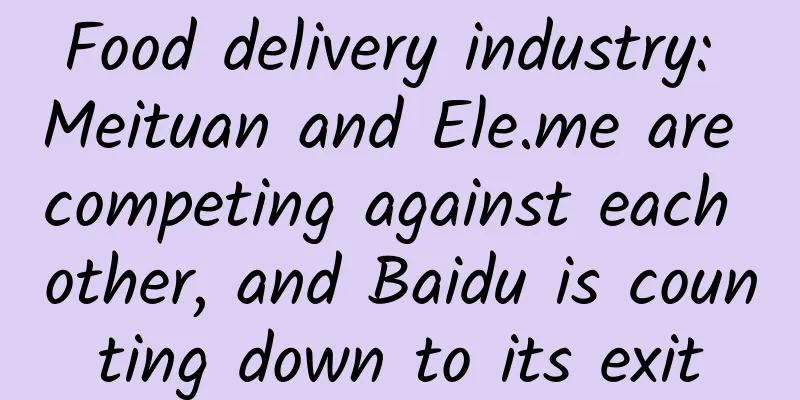The reward war escalates into a lose-lose game between Apple and APP developers

|
Following WeChat, Apple has finally taken action against other domestic apps with reward functions. According to the Wall Street Journal, executives from WeChat and other companies revealed that Apple has notified several Chinese social networking apps that according to the App Store regulations, Apple requires them to either use the in-app purchase channel or disable the reward function. The CEOs of two companies said that Apple told them that if they refused to change, the upgraded versions of their apps would no longer be available to users, and they might even be kicked out of the App Store. As early as last month on April 19, the WeChat reward function was closed due to Apple's rules. Later, WeChat tried to circumvent Apple's rules by transferring money through QR codes, but was quickly stopped by Apple. At present, Apple has finally expanded the scope and targets of the ban to other apps with reward functions. In China, many apps, including most live broadcast platforms, Douban, Zhihu, Sina Weibo, Fenda and other apps, as well as news clients such as Tencent and NetEase, have basically already had the reward function. Apple is very anxious now. In the Chinese market, the iPhone is not selling well, the performance is not good, and the financial report is dragged down by the Chinese market. It is thinking about ways to make money from the software service revenue. The more money it can make, the better, at least to make the financial report look better, keep investors optimistic, and let the stock price rise. From another perspective, it also reveals Apple’s deep helplessness. Apple has absolute control over the iOS mobile operating system, and has always been cautious in controlling the APPs on the iPhone. In the past, once it was discovered that the economic and ecological power formed by certain APPs had a tendency to develop into independent platforms or cause an impact on its own business, many giants, including Apple, would try to control the APP as their own, or develop another application to replace it. For example, Facebook quickly acquired WhatsApp after realizing the threat it posed to its own social network. Facebook also tried to acquire Snapchat but was rejected. Apple prefers to adopt another approach. As early as 2012, Google Maps developed rapidly and became the preferred map service provider in many countries and regions around the world, and was very popular on the iPhone. Apple realized at the time that Google Maps might extend its map service into an independent platform and connect offline merchant services, posing a threat to Apple's long-term profitability. At the time, Apple developed its own map application to compete with Google. Although there is still a gap between it and Google Maps, the iPhone has finally gotten rid of the threat of Google Maps and has taken control of the value of map services. However, in the social field, the stickiness of the relationship chain of social platforms, migration costs and scale effects have determined that Apple is unable to develop another social software to compete, and WeChat is more likely to develop into an independent platform than Google Maps in the past. More importantly, if the super APP in the operating system platform wants to develop into an independent platform that threatens the parent platform, the payment system is the key link in the closed loop of platform transactions. On the other hand, WeChat is a small platform within the iOS platform. Apple realizes that although "rewards" are a way for these social applications to encourage user participation, if their nature is equivalent to the games, music and videos purchased by users, Apple can also make a lot of money. Apple should also be aware that if WeChat mini-programs and many other paid platforms can attract a large number of third-party developers to enter in the future, and users form a habit of rewarding, and if the closed loop of transactions of many developers is set as user rewards instead of in-app purchases, Apple will suffer huge losses. Therefore, Apple has choked off the small flame of "rewards" in order to make the best plan for its own interests. Because the strategic significance of Apple's move is obvious, which is to try to control the most valuable resources in the iOS platform ecosystem. The most valuable resources in the platform system are closely related to its profit and revenue, that is, the in-app purchase payment channel. Although a basic common sense that everyone knows is that tipping belongs to users after consuming content, not before consumption, it is a way to express appreciation for content, not a transaction. But Apple equates the meaning of tipping with transactions, which is obviously for profit and does not ignore basic common sense. When people have become accustomed to tipping and are happy to do it, Apple forcibly stands out and says that tips are not allowed, and if you want to give, you have to give me 30% of the share. The negative effect of this is that it faces backlash from all sides. The unreasonable intervention in the interaction between readers and authors or service providers in the APP will affect the user experience and touch multiple interest levels. It will also cause Apple's brand favorability in China to decline, as well as the accompanying public opinion pressure and regulatory pressure, and lead to the destruction of the relationship between Apple and third-party developers. For example, an Internet company with a reward function has reported the matter to the Ministry of Industry and Information Technology of China, questioning the unfair rules imposed by Apple. But Apple's move to make such a bad move is not only driven by profit-seeking in terms of content and software, but also because of its fear of WeChat. Thompson, a well-known foreign technology blogger, once said that WeChat is Apple's biggest obstacle in China, because in China, WeChat is the operating system, not iOS or Android. It is precisely because WeChat is more important than iOS that WeChat has a higher stickiness in China. Apple iPhone 7, on the other hand, looks bland, which results in iOS retention and loyalty in the Chinese market being much lower than in other countries. According to the UBS study, iPhone retention rates in the United States, the United Kingdom, and Germany are between 85% and 90%. In Japan, iPhone retention rates are also around 75%. But the figures in China have dropped significantly - around 55% in Q4 2016. However, if China starts looking for reasons to suppress WeChat and other apps with reward functions from a regulatory perspective just because Chinese iPhone users are not as loyal to the iPhone platform as users in other places and because it has harmed Apple's financial profits, this will obviously push many app developers to Android. Because there are more and more apps with reward functions in China, the platform stakeholders and user groups involved are also getting bigger and bigger. In addition to social platforms such as WeChat, Weibo, QQ Space, knowledge communities such as Zhihu, Fenda, Jianshu, various live broadcast platforms such as Panda and Douyu, Himalaya FM, bilibili animation, Kugou, Douban; news clients such as Tencent News, UC, NetEase News, Toutiao, and even O2O platforms such as Meituan Waimai, many apps basically have reward functions. In short, current content consumption is the development trend of mobile Internet. Rewards have basically become a standard feature of many content platforms. In the future, it will even become a standard feature of APPs in more other fields. However, once Apple forcefully requires a 30% share of the reward function, this will inevitably affect the revenue of platform content producers of these APPs and the stable operation of the platforms, especially for live broadcast platforms. Most of the income of anchors depends on the props given by the audience to the anchors to share with the live broadcast platforms. If based on the in-app purchase rules of Apple App Store, the income of live broadcast platforms and anchors will shrink, which will directly affect the revenue of these live broadcast platforms or other social, knowledge community platforms or knowledge payment platforms. In this case, many apps may adopt certain strategies for the benefit of their own platforms and content producers, focusing more on guiding users to use Android phones to upgrade their software experience and obtain better or exclusive content consumption experience and various value-added services on Android. This will lead to more differentiation in content consumption between Android and iOS, and Android will gradually win in content consumption experience and content richness. In the final analysis, it may not be wrong for Apple under Cook's leadership to formulate strategies centered around profits, but it is wrong to ignore the rights and responsibilities and connotations of the operating system platform. The operating platform is essentially a self-service system. The core of its stable operation is to provide users and developers with a good experience. The purpose of opening the platform to developers is to promote high-quality content creation and supply, and to minimize the obstacles to consumer experience, and to guide popularity based on consumer needs, rather than suppressing popularity. It needs to eliminate the barriers to producer participation in order to create value, increase new supply and innovation in the content ecosystem. However, in order to eliminate threats or increase profits, Apple is currently creating obstacles, suppressing content ecosystem innovation, and damaging the consumer experience that users are accustomed to. Because the popularity of tipping is an unconditional appreciation and gift from content consumers to content producers, Apple has stretched its hand too far. In the eyes of many developers, content producers, and users, this is a brutal and unfair profit. We can also view Apple's move as a sign of its misunderstanding of Chinese culture and that its rules can no longer keep up with the pace of innovation and development in Chinese software applications. However, using a backward perspective to suppress the tipping behavior that consumers are generally used to may lead to a further decline in the already declining loyalty of iPhone Chinese users, which in turn affects its high-end brand image. As mentioned above, this is bound to lead to a large number of users and APP developers being disgusted with Apple. Judging from the attitudes of current developers who have the reward function and the attitudes of domestic users, Apple's mandatory requirement of having a reward function and using the in-app purchase channel and forcing a 30% share will hardly force developers to comply. If rewards have little impact on platform operations, many APPs may follow WeChat's example and cancel the reward function. Therefore, it will be difficult for Apple to extract commissions from a large number of APPs with reward functions as it wishes, and it will also have to bear the stigma. At the same time, these affected developers will begin to pay more attention to the maintenance, optimization and upgrading of Android social rewards and content consumption ecosystem. This incident also established an image of Apple as conservative, stubborn and arrogant for profit and revenue without regard for user experience. For apps with reward functions and Apple itself, Apple's promotion of the escalation of the reward war is obviously a lose-lose game that benefits neither app developers nor Apple. As a winner of Toutiao's Qingyun Plan and Baijiahao's Bai+ Plan, the 2019 Baidu Digital Author of the Year, the Baijiahao's Most Popular Author in the Technology Field, the 2019 Sogou Technology and Culture Author, and the 2021 Baijiahao Quarterly Influential Creator, he has won many awards, including the 2013 Sohu Best Industry Media Person, the 2015 China New Media Entrepreneurship Competition Beijing Third Place, the 2015 Guangmang Experience Award, the 2015 China New Media Entrepreneurship Competition Finals Third Place, and the 2018 Baidu Dynamic Annual Powerful Celebrity. |
<<: Geely Borui GE New Energy officially launched, starting at 136,800 yuan
Recommend
Is it harder to collect a prehistoric plant "puzzle" than to find "Dragon Balls" with a radar?
In the process of fossilization, it is difficult ...
Sad! Sudden poisoning caused 4 deaths! Just because of eating it by mistake, we must pay attention to it in our lives
Expert of this article: Pa Lize, Chief Physician ...
Thousands of years of wisdom shine today! The 24 solar terms have been included in the World Heritage List for five years!
Five years ago November 30, 2016 The “Twenty-Four...
World Osteoporosis Day | This free method is better than calcium supplementation
October 20th is World Osteoporosis Day, and this ...
"Health from eating" series | What to do if you have a sore throat? Four things to do and two things to avoid when protecting your throat in autumn and winter
With the arrival of autumn and winter, the number...
How can an ordinary self-media person become a marketing tycoon? Watch me subdue the dragon with eighteen moves
When I opened the backend of the official account...
From an operational perspective, let’s talk about the user incentive system of financial products
The user incentive system means that while the pr...
Selling 196 million in one day, how did Himalaya achieve growth?
Himalaya was established in 2012. Its previous po...
The first case in China: 8 people sentenced for “cleaning up followers” on WeChat
[[385877]] I believe that many people have more o...
In-depth analysis of Pinduoduo’s product operations in 2019!
Jobs said that consumers don’t know what they nee...
Every bite you eat is responsible for your brain
After the various fatty acids in food enter the h...
Today, it was officially unveiled! So beautiful!
This morning South China National Botanical Garde...
Android quickly implements WeChat payment
If you have successfully integrated WeChat login ...
A new feature of Douyin information flow is launched, come and unlock new postures~
As short videos have become an important tool for...









